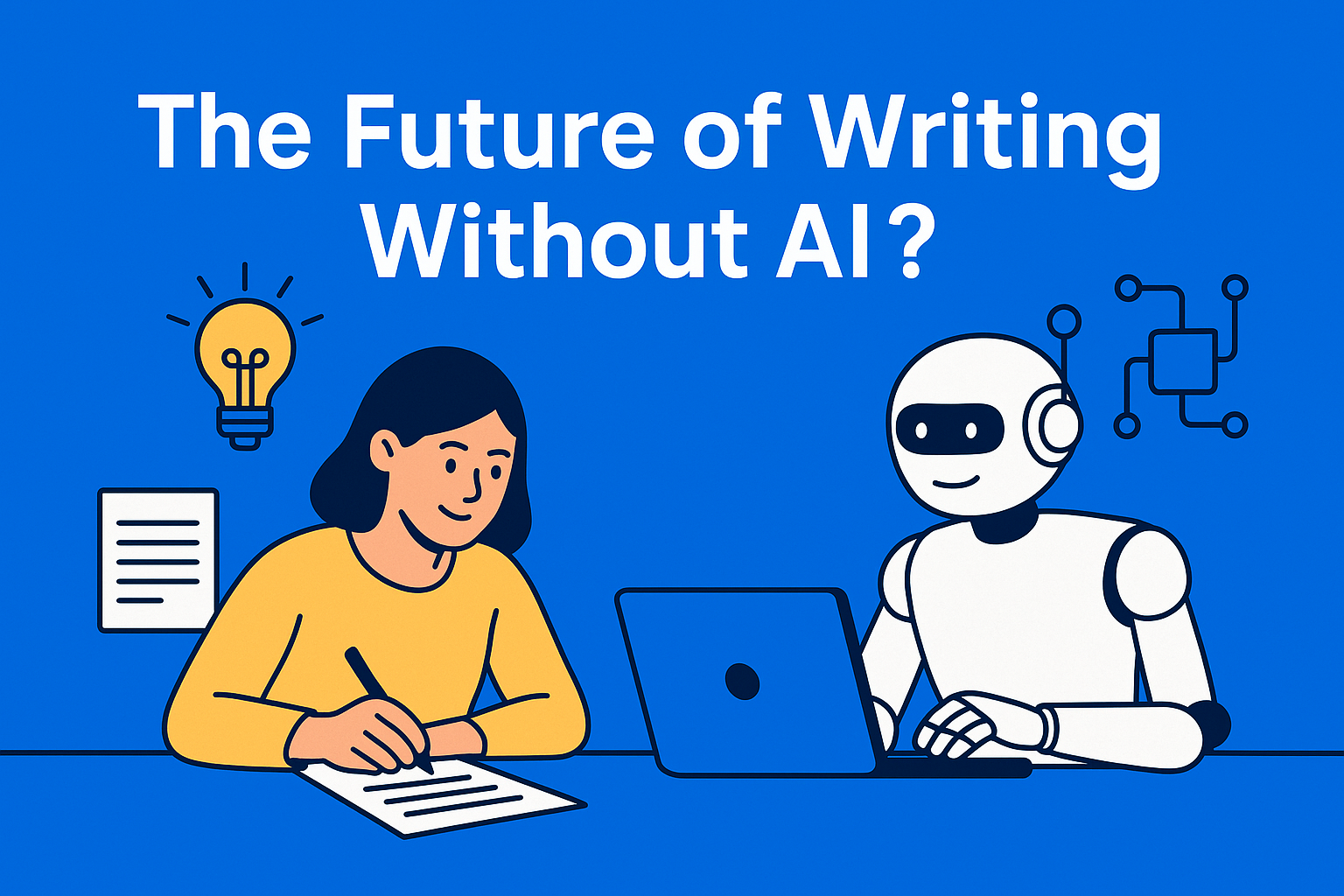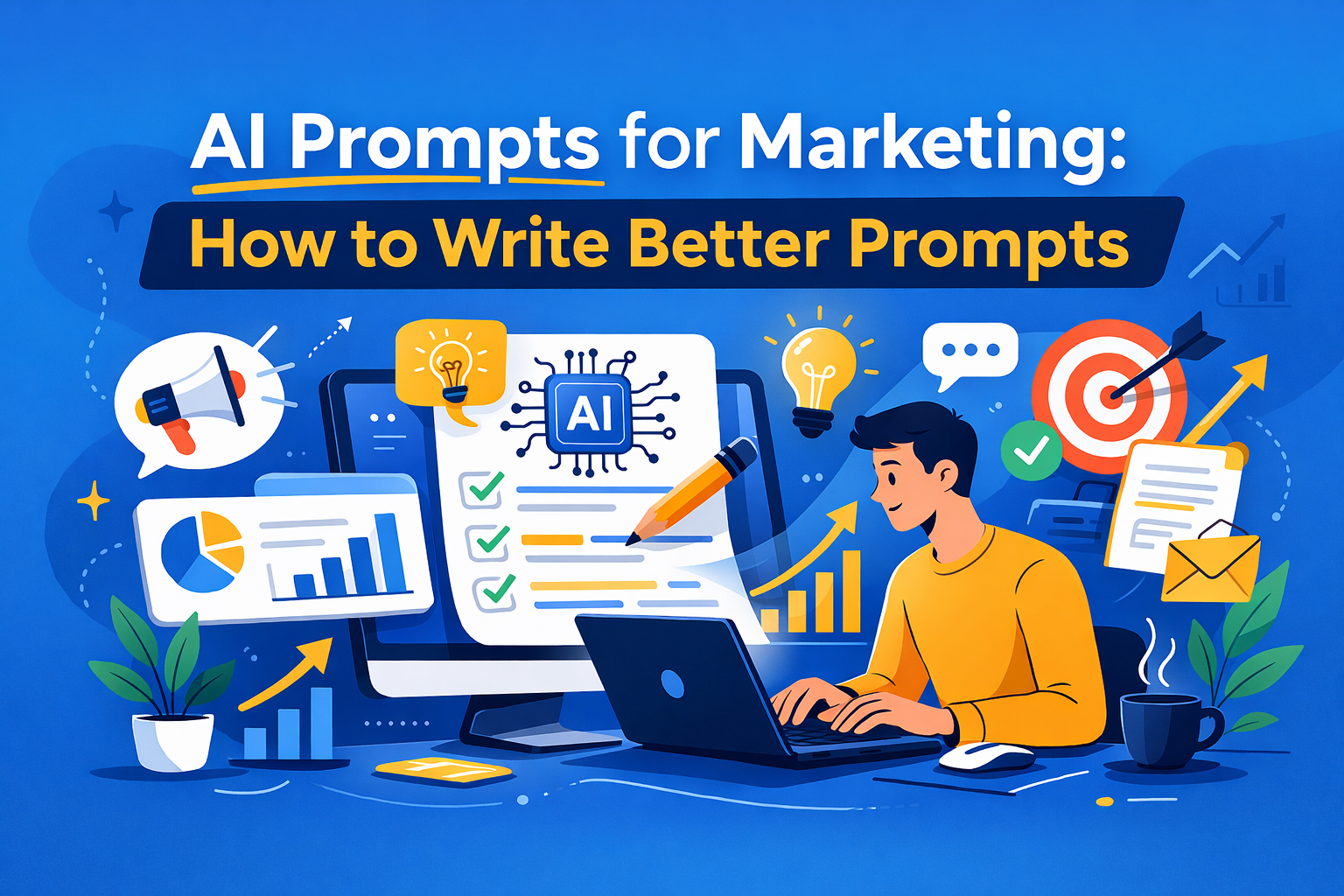Will Writing Without AI Still Be Worth It in the Future?
As AI writing tools grow faster and smarter, will human-written content remain a valued craft or become an impractical luxury? Explore the future of writing without AI, its unique advantages, risks, and how it might stand out in an AI-driven world.

Remember the days when writing meant sitting at your desk, staring at a blank screen, trying to get that first sentence out? Coffee in hand, hoping inspiration would come through the open window, and the cursor blinking like it’s mocking you. Today, things are completely different. With an AI assistant, you can get a draft in under a minute - no stress, no waiting.
So here’s the real question:
Will writing without AI even make sense in the future?
Key Takeaways
- Manual writing may survive as a niche - valued for authenticity, emotion, and personal storytelling.
- AI’s speed and adaptability will make it the default for most commercial and high-volume writing tasks.
- Future labels like “100% Human Writing” could function like organic or handmade product tags - appealing to smaller but loyal audiences.
- Perception could shift - what’s now seen as a creative choice might be viewed later as slow or inefficient.
- Hybrid workflows (AI for efficiency, human touch for connection) will likely become the most practical approach.
Writing with AI isn’t help anymore - it’s the new standard
Using AI in writing has become almost unavoidable. Whether you're a copywriter, blogger, content marketer, student, or just someone who likes to write - chances are you've used tools like ChatGPT, Claude, or Jasper at least once.
We're not just talking about optional tools anymore. These platforms are becoming part of everyday work. And it’s not just about generating text - AI helps you with structure, headline ideas, grammar corrections, even adjusting tone to fit a specific audience.
If you’re still writing everything “by hand,” you might soon find yourself falling behind. Not because you lack talent - but because you can't keep up.
From speed to quality: What AI brings to the writing table
Speed is the obvious benefit. But more importantly, AI can help improve the quality of your writing from the very first draft. With just a bit of input, you can get a draft that is:
- consistent in tone
- clear and easy to understand
- SEO-friendly
- tailored to your audience
That’s more than most people can achieve without a lot of prep work. AI content creation is no longer about "type a prompt, get a sentence." It's about the whole creative support system.
Using tools like Grammarly or similar services helps you write faster - but also clearer. They help you shape your thoughts better, clean up your grammar, and write in a way that’s easy for people to follow.
What do you lose if you avoid using AI?
There’s a romantic idea that writing without AI is more authentic. That it has more soul. That you can feel the human behind the words. And sure - sometimes, that’s true.
But most of the time, readers don’t know (and honestly don’t care) whether a human or an AI wrote the text. What matters to them is:
- that it’s clear
- that it gives quick answers
- that it holds their attention
So, unless you're incredibly original, your writing may come across as a weaker version of what AI could’ve done faster.
Human-written content sounds great on paper. But in the digital world (where performance and engagement rule), raw emotion often takes a backseat. And that doesn’t mean emotion isn’t important. It just means AI has learned how to express it well enough.
Can writing without AI become an advantage?
Technically, yes. But... it depends. In a world where everyone uses the same tools, maybe your “handwritten” blog will feel refreshing. Maybe an honest, slightly rough-around-the-edges post will stand out among all the polished AI content.
But that takes serious talent, time, and a deep understanding of your audience.
If not, you might just seem like someone who’s trying to be “real” at the cost of quality. Or worse - at the cost of readability.
Artistic forms like poetry, personal essays, or journal-style writing still hold a special place for manual writing. In these kinds of texts, it’s not about speed or perfection. It’s about honesty, emotion, and your unique voice. Small mistakes, unusual rhythm, or imperfections can actually make the writing stronger.
So yes - writing by hand still matters in these genres. But if you’re writing for a website, a sales page, a newsletter, or a blog that needs five posts a week… AI isn’t just helpful. It’s essential.
The writer's role is shifting: From creator to director
In this new world, you're not just someone who "writes." You're someone who:
- thinks about the message
- decides how it should sound
- knows who the audience is
- checks whether the AI got it right
Yes, you're still writing - but with backup. With brainstorming ten different ideas. With edits coming in instantly. With the option to try five versions of a paragraph and pick the best.
Writing without AI, in that context, is like cooking over a fire when you have a modern oven right next to you.
Will people still write without AI?
Sure. Of course. But it’ll become a special form of expression. Like hand-embroidered clothes in a world of fast fashion. It’ll be appreciated - but only by a select few.
Maybe we’ll even start labeling things, like we do with “handmade” or “organic” today:
- “This article was written without AI.”
- “100% human words.”
That can be meaningful. But it probably won’t become the norm. More like a creative luxury.
Think of it like vinyl records. People moved on to tapes, CDs, and now streaming. But vinyl still has a fanbase - just a smaller, dedicated one.
Conclusion
Writing without AI won’t disappear. But it won’t dominate either. It’ll stick around where personal emotion matters more than structure. Where spontaneity is more important than polished form. Where the audience wants a soul, not just answers.
For everything else, AI writing tools are already part of daily work. The sooner we accept that, the better.






